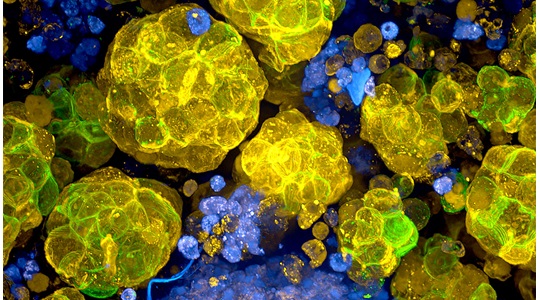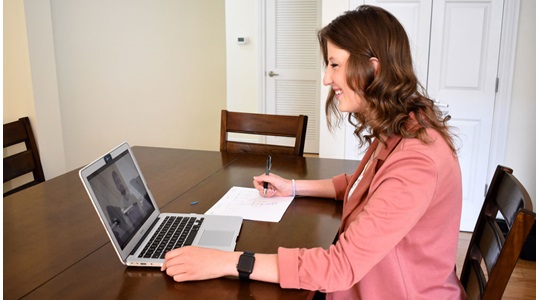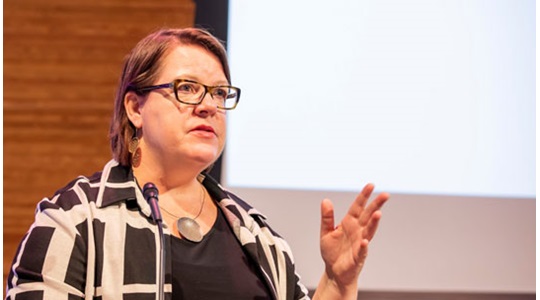-
 Featured ArticleMarch 08, 2022
Featured ArticleMarch 08, 2022JAX celebrates women in science
By highlighting the achievements of women in science, we are celebrating not only their contributions to research but also recognizing their struggles navigating what was, for many of them, a non-traditional career. -
 Tech CornerMay 21, 2021
Tech CornerMay 21, 2021Building realistic biological systems outside the human body
Learn how researchers use organoids to explore complex biological systems outside the human body. -
 Search MagazineJune 23, 2020
Search MagazineJune 23, 2020More genetic counselors are needed to realize the potential of precision medicine
The Global Alliance for Genomics and Health predicts that 60 million genomes will be sequenced worldwide by 2025. -
 Blog PostMay 06, 2019
Blog PostMay 06, 2019CKB, powered by JAX, oncology spotlight: Revealing complex clinical genomic associations
Harnessing the complex and continued accumulation of data associated with tumors has been traditionally difficult. The majority of cancer efficacy data has been represented as one drug associated with a single alteration. The Clinical Knowledgebase (CKB), powered by JAX, is designed to capture previously reported efficacy data, as well as new data, as it relates to mutations arising from therapeutic resistance or multiple alterations responding to a cocktail of therapies. This tool can aid in the interpretation of complex scenarios and facilitate accurate drug treatment decisions.
-
 Blog PostOctober 25, 2021
Blog PostOctober 25, 2021Assessing patient health risks with limited or unknown family history
With November designated as Family Health History month, clinicians are sure to have seen lots of messaging encouraging their patients to discuss family health history around the holiday table. But what if there is no family history to be gathered? -
 Tech CornerFebruary 01, 2021
Tech CornerFebruary 01, 2021Machine learning: Shining a light on genomic function
Machine learning platforms can be fed data to "teach" them to learn patterns and predict outcomes, and they are becoming more important all the time in biomedical research. But what are they? How do they work? And can we peer into the black box of their inner functions to make them more powerful for prediction and discovery? -
 Tech CornerJanuary 21, 2020
Tech CornerJanuary 21, 20205 questions with Katja Brose
Chan Zuckerberg Initiative (CZI) Science Program Officer Katja Brose visited JAX to speak about CZI and moderate an Alzheimer’s disease research panel discussion at the JAX Healthcare Forum, an annual gathering of leaders in a wide variety of healthcare fields. JAX was able to catch up with Dr. Brose after her sessions. -
 Search MagazineMarch 19, 2019
Search MagazineMarch 19, 2019Making a difference for rural cancer patients
Dr. Jens Rueter and the Maine Cancer Genomics Initiative are providing advanced genomic tools to oncology practices throughout Maine.